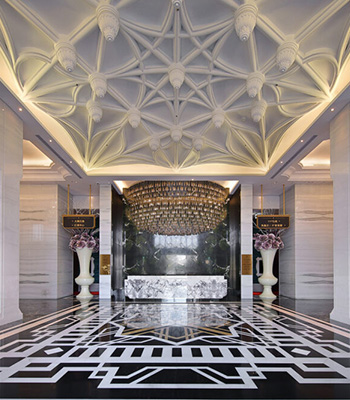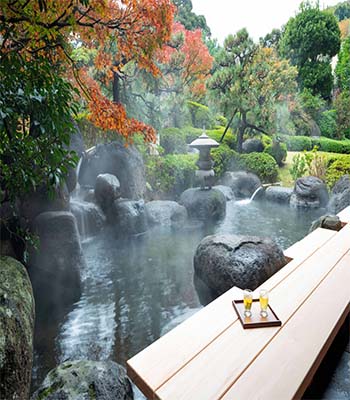
日本和匈牙利的溫泉觀光:感知力和潛力的比較分析
近年來,所有公司都傾向於轉向與商品相關的質量,並直接提供旨在創造競爭優勢並為客戶提供可永續性「品質」的服務。
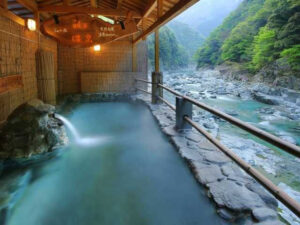
許多研究人員已經檢查了品質問題(Asubonteng等人,1996年BabakusκαιBoller,1992年Buttle等)。因此,現有的企業正在尋求遵守某些標準(例如國家標准或ISO標準),並且已通過第三方認證根據Varvaresos(2009年),在許多國家/地區,有時還為公司「建立」了一系列的行業或專業標準,以「證明」其符合理論模型,並為其客戶提供一定水準的服務或產品。 ),自1990年代以來,希臘旅遊業發展模式已進入危機階段,因此,隨著全球金融危機的蔓延,代表該國目前旅遊業發展模式的許多扭曲現象可能會變得更加明顯。如果希臘旅遊業想在國際競爭中生存並繼續作為重要的經濟因素(收入、就業),則應嘗試進行重組在形成新的開發模型方面確定產品。這種新模式應以可持續發展的定性為指導。
鄉村旅遊。鄉村旅遊企業的成功取決於對數據的開發,例如當前信息、特價、培訓以及對競爭優勢的追求(Pazek,MajkovicκαιBorec,2005)。在競爭激烈且不斷發展的市場中,提供服務的質量對於企業的生存越來越重要。鄉村旅遊服務質量是一個重要因素,顧客/消費者在選擇住宿鄉村旅遊單位時要考慮到這一因素(Potocnik,2006)。因此,有一個明確需要估計鄉村旅遊單位的服務;然而,由於提供給訪問者的各種服務,問題變得複雜。
本研究的目的是研究希臘的鄉村旅遊發展,並確定每個國家應與當地社區和其他利益相關者合作採取的五個基本步驟,以便為鄉村旅遊發展奠定基礎。將對所有利益相關者有利。希臘的鄉村旅遊歷史相對較短。它的根源可以在希臘常見的各種鄉村旅遊中找到,並發生在宗教慶祝活動(聖誕節、復活節、當地聖徒日子)和周末期間。
In recent years all companies have tended to turn to quality in relation to the goods and provide services directly aimed at creating a competitive advantage and providing sustainable “quality” to their customers. A lot of researchers have examined the quality issue (Asubonteng et al, 1996 Babakus και Boller, 1992 Buttle, etc. Therefore, there are existing businesses seeking to comply with certain standards (e.g. national or iso) and they are certified by a third party under a standard. There have also been created at times a number of industry or professional standards in many countries for companies to “prove” compliance with the theoretical model and provide a certain level of services or products to their customers. Αccording to Varvaresos (2009), the Greek tourism development model has entered a phase of crisis since the 1990’s. It therefore seems likely that a number of distortions that characterize the present model of tourism development in the country will become more pronounced with the spread of the global financial crisis. If the Greek tourism wants to survive in international competition and to remain as a significant economic factor (income, employment) it should attempt a restructuring of the product in terms of forming a new development model. This new model should be guided by the qualitative and sustainable development of rural tourism. The success of the rural tourism enterprises depends on the exploitation of data such as current information, special offers, training in combination with the quest of competitive advantage (Pazek, Majkovic και Borec, 2005). In a competitive and constantly developing market, the quality of the providing services becomes more and more crucial for the survival of the businesses. The quality of services in rural tourism is a significant factor which is taken into account by the customers/consumers in their choice of rural tourism unit for their stay (Potocnik, 2006). Therefore, there is a clear need for estimation of the providing services in the rural tourism units; however, the problem becomes complicated due to the various services provided to the visitors. The aim of the present study is to examine the rural tourism development in Greece and to determine the five basic steps which each country should take in collaboration with the local community and the other stakeholders, in order to create the base for the rural tourism development which will be beneficial to all the stakeholders. Rural tourism in Greece has a relatively short history. Its roots can be found in various types of countryside tourism which are common in Greece and take place during religious celebrations (Christmas, Easter, local Saints days) and at the weekends.
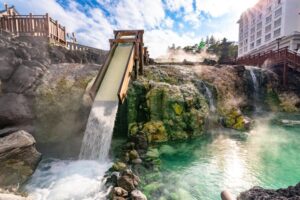
這種鄉村旅遊在1980年代被重新命名為「鄉村旅遊」,並伴隨著兩個關鍵事件。首先是1981年希臘加入歐洲經濟共同體,其後促進了一系列促進地方和農村發展的計劃。第二個重要的發展是強調諸如性別平等和改善主要是山區和不利地區的農村人口的生活條件等問題。 (Gidarakou,1999)。希臘的鄉村旅遊,根據其活動地區而定,分為以下幾類(Balamou和Psaltopoulos,2006年):大型農業經營中的鄉村旅遊,遊客會停留在農場的特別設計區域,可以自願參加參與農業或農村活動。鄉村地區的鄉村旅遊,遊客在這里居住在出租房或客房中,並參加鄉村或娛樂活動(遠足,攀登等)。島嶼或沿海地區的鄉村旅遊,遊客在這裡住簡單的住宿,並參與海洋和鄉村生活的娛樂活動。傳統住區中的鄉村旅遊,遊客在簡單的傳統民居中停留,這些民居具有當地特色和不同的建築風格,並提供當地產品和各種活動。具有特殊自然風光或保護區的鄉村旅遊,這些鄉村或國家公園靠近美麗的景點(例如湖泊,河流,生物群落等),由於自然風光吸引了遊客。公司單位中的鄉村旅遊,是在友好環境中的小旅館,周圍是許多農業活動,這些活動促進了該地區的文化和自然特色。有許多原因使像希臘這樣的國家轉向鄉村旅遊,因為農業部門目前佔GDP的3.4%,而從事農業的人約佔勞動力的11.5%。農業部門的作用不僅在數量上而且在質量上都在下降。這種惡化的原因是這樣一個事實,即我們沒有利用歐洲的援助來重組農村生產部門,而是參與了農業客戶特徵的分配(Masialos,2010)。此外,相對於其他專業水平,農民的教育水平較低;在農業工作的663766人中,小學畢業生的比例為69.5%,高中畢業生的比例為15%,最高學位的比例為1.2%。(農村發展和糧食部,特別秘書處,2009)作者認為,如果在開展這項活動之前採取一些基本步驟,鄉村旅遊將是成功和可持續的。鄉村旅遊業可持續發展的基本步驟在任何業務流程中,都有必要製定戰略計劃,以衡量,評估和改進論據,最重要的是要保持可持續性。例如,如果我們想通過創建新的國家產品(例如鄉村旅遊)來將兩個領域納入短期規劃中,則應建立在可衡量的目標並強調質量的堅實基礎上。
This type of countryside tourism was renamed as“rural tourism” in the 1980s and concurred along with two crucial events. The first was the entering of Greece in the European Economic Community in 1981, which was followed by the promotion of a series of programmes for the local and rural development. The second important development was the emphasis on issues such as the equality of the sexes and the upgrade of the living conditions for the rural population, mainly of mountainous and disadvantageous areas. (Gidarakou, 1999). Rural tourism in Greece, depending on the region where it takes place, is classified into the following categories (Balamou and Psaltopoulos, 2006): Rural tourism in large agricultural operations, where the visitor stays in especially designed parts of the farm and can voluntarily take part in the agricultural or rural activities. Rural tourism in rural regions, where the visitor-tourist stays in a rented room or guest room and takes part in rural or recreation activities (hiking, climbing, etc.). Rural tourism in islands or coastal regions, where the visitor-tourist stays in simple lodgings and participates in recreation activities of the sea and the village life. Rural tourism in traditional settlements, where the visitor-tourist stays in simple traditional houses which have a local character and a different architectural aspect and are provided with local products and a variety of activities. Rural tourism in villages of special natural beauty or protected areas, which are villages or national parks close to beautiful sites (e.g. lakes, rivers, biotopes etc.) which attract the tourists because of their natural beauty. Rural tourism in corporate units which are small hotels in a friendly environment surrounded by a lot of agricultural operations which promote the cultural and natural characteristics of the region. There are many reasons which make a country like Greece to turn to Rural tourism, since the agricultural secto currently involves a percentage of 3.4% of GDP, while those employed in agriculture make up approximately 11.5% of the workforce. The Role of the agricultural sector is declining not only quantitatively but also qualitatively. The reason for this deterioration is the fact that instead of taking advantage of European aid to restructure the rural productive sector, we have been involved in a customer character distribution in agriculture (Masialos, 2010). Moreover, the educational level of farmers in relation to the level of other professions is lower; of the 663,766 employed in agriculture, there is a 69.5% rate of primary school graduates, 15% of high school graduates 1.2% of maximum degree holders. (Ministry of Rural Development and Food, Special Secretariat 2009) Rural tourism can be successful and sustainable, according to the authors, if some basic steps are followed before the development of the activity. Basic steps for sustainable rural tourism development In any business process it is necessary to have a strategic plan for an argument to be measured, evaluated and improved and, above all, be sustainable. If we would like, for example, to involve two areas in along-term planning by creating a new national product (e.g. rural tourism) it should be established on solid foundations with measurable objectives and emphasis on quality.

1.制定國家計劃
國家應與有關機構合作制定目標,以便為項目提供資金,並監督設計過程中的過程並提供官方信息。通常有必要由縣進行詳細調查,但不限於此。繪製鄉村旅遊中縣的動態圖活動和特徵(例如文化,傳統,環境,建築)可支持鄉村旅遊活動的當地縣域作物和產品的地圖。記錄每個縣可以支持鄉村旅遊的潛在人力資源活動。提出關於鄉村旅遊部門必須如何工作的“建議”
2.職業教育和培訓為了解決缺乏培訓的主要問題,有必要在有關方面開始分階段處理鄉村旅遊之前對其進行教育:
階段1:
對希望在實地工作的人員進行立法問題和業務發展基本原則方面的培訓。
階段2:
對一定要在業務計劃方面負責的領域的人員進行培訓,以使其了解企業的所有設計參數。
階段3:
對必將處理技術營銷,管理和質量問題領域人員的培訓。通知有關方面有關營銷和管理的基本概念,以發展業務知識。質量的這一維度非常重要,因為它會影響客戶在使用服務之前的期望以及通過體驗提供的服務質量感知(Gilbert和Joshi,1999)。管理者和員工的利益集中
他們的工作需要安全性和滿意度;他們希望得到客戶的尊重和讚賞;他們希望以公司為榮,並且仍在工作,因為質量可以培養忠實的客戶,並且更能容忍錯誤
(Spanos,1993)。
階段4:
根據創建知識的公司創建個人簡介企業家,以獲取仍然存在的缺陷(例如,外語)。這主要是對公司和企業家的一種評價,是對教育的推薦。在這種情況下,有時會為鄉村旅遊設施制定規則,通常是通過採取行動做出了巨大的努力,該行動已獲得EC資助,標題為:Eurogites鄉村旅遊住宿質量評估標準(國際水平)這些標準代表了共識歐洲鄉村旅遊聯盟(歐洲鄉村旅遊聯盟)的24個成員國在2005年的大會上批准了鄉村旅遊住宿質量。
包括所有Eurogites成員的質量計劃中存在的方面。標準標準分為五個類別:
1.設備
2.環境
3.住宿和周圍環境的服務
4.無形的方面,例如個人關注,隱私或氛圍
5.安全保障
(http://quality.eurogites.org)
階段5:
創建運行優質農業部門的“規則”,並每三年對它們進行改進或審查,以獲取進一步的改進和最佳實踐
在接下來的三年中,監控個人企業家的財務業績和業務發展建議。可以發展這些階段,以支持鄉村旅遊活動,並納入具有自身特點的成人教育原則。這些階段的定義範圍是五年,可以更詳細地分配給各個經常性目標,以提供最大的收益。
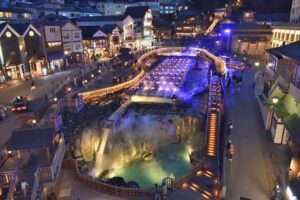
1. Creating a National Plan
The state in cooperation with the interested institutions should set goals in order to finance the project and oversee the process to be within the design and to provide official information. It is typically necessary to carry out a detailed investigation by the county, but not a limited one. Mapping the dynamics of the county in rural tourism
activities and characteristics (e.g., culture, tradition, environment, architecture) Mapping of local county crops and products that can support rural tourism activities. Recording every county of the potential human resources that can support rural tourism
activities. Creating “proposals” on how rural tourism units must work
2. Vocational education and training To address the major problem of the lack of training it is necessary to educate interested parties before they start dealing with rural tourism in stages:
Stage 1:
Training of people wishing to work in the field, on legislation issues and basic principles of business development.
Stage 2:
Training of people who will definitely take care of the area, on business planning, to know all the design parameters of a business.
Stage 3:
Training of people who will surely deal with the field of technical marketing, management and quality issues. Informing the interested parties about the basic concepts of Marketing and management to develop the business knowing how. This dimension of quality is important as it affects both the expectations of a customer before using the service and the perception of quality of service offered through the experiences (Gilbert and Joshi, 1999). The interest of managers and employees focuses
on the need for security and satisfaction from their work; they want respect and appreciation from the client; they want to take pride in the company and are still working because the quality creates loyal customers and more tolerant to errors
(Spanos, 1993).
Stage 4:
Create a personal profile entrepreneur based on the company that created the knowledge acquired the deficiencies that still exist (eg foreign languages). Mainly this is a kind of evaluation of the company and the entrepreneur and referral to education. In this case, there have been at times created rules for rural tourism facilities, typically a significant effort was made through action which has received EC funding with title: Eurogites quality assessment standards for rural tourism accommodations (international level) These standards represent a common understanding of rural tourism accommodation quality as they were approved by 24 member countries of Eurogites (European Federation of Rural Tourism) at the General Assembly in 2005. The standards comprise those aspects which are present in quality schemes of all Eurogites members. The standard criteria are grouped in five clusters:
1.Equipment
2.Surroundings
3. Services at the accommodation and in surroundings
4. Intangible aspects such as personal attention, privacy, or ambience
5. Security and safety
(http://quality.eurogites.org)
Stage 5:
Create “rules” for running quality agro units and improve or review them every three years for further improvements and best practices
Monitoring of individual entrepreneurs to financial results and business development proposals over the next three years. These stages can be developed to support the activities of rural tourism and incorporate the principles of adult education which has its own particularities. The stages are defined over a horizon of five years and can be allocated to individual frequent targets in more detail to provide the greatest possible benefit.
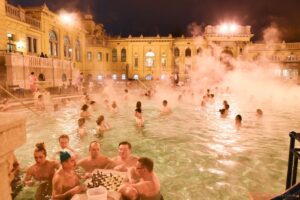
結論
在危機時期,可以發展出足以支持國家的不同地區。 就未來幾年將顯示增長的旅遊業而言,有必要建立堅實的基礎。 因此,我們建議分五個階段開發具有強烈培訓特色的區域,因為該部門中潛在僱員的教育水平和利益可以自己存在,通常是指旅遊區的意見學習者企業家: 培訓對象為:96%(Kepa Pierias,2005年)。 隨著行業的長期規劃和適當發展,具有強大的本地利益和鄉村發展以及其他替代旅遊業的公司肯定會長期生存。
Conclusion
In times of crisis different areas sufficient to support the state can develop. In the case of the tourism sector which will show growth in the coming years it is necessary to create a solid foundation. Therefore, we propose to develop the area in five stages with a strong feature of the training because the educational level of potential employees in the sector and the interest can exist by themselves, typically referred to the opinion learners entrepreneurs in tourist areas: Positive view of the training were: 96% (Kepa Pierias, 2005). With long-term planning and proper development of the industry there will certainly be long-term survival requirements of companies with strong local benefits and rural development and other alternative forms of tourism.
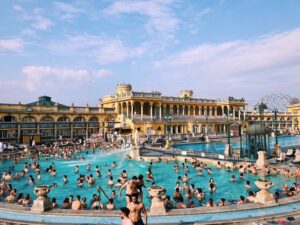
文/ Tamara Ratz
圖/Website Resource

